Related Research Articles

William Farr CB was a British epidemiologist, regarded as one of the founders of medical statistics.

Thomas Hughes was an English lawyer, judge, politician and author. He is most famous for his novel Tom Brown's School Days (1857), a semi-autobiographical work set at Rugby School, which Hughes had attended. It had a lesser-known sequel, Tom Brown at Oxford (1861).

Sir William George Granville Venables Vernon Harcourt was a British lawyer, journalist and Liberal statesman. He served as Member of Parliament for Oxford, Derby then West Monmouthshire and held the offices of Home Secretary and Chancellor of the Exchequer under William Ewart Gladstone before becoming Leader of the Opposition. A talented speaker in parliament, he was sometimes regarded as aloof and possessing only an intellectual involvement in his causes. He failed to engender much emotional response in the public and became only a reluctant and disillusioned leader of his party.

The Mugwumps were Republican political activists in the United States who were intensely opposed to political corruption. They were never formally organized. Typically they switched parties from the Republican Party by supporting Democratic candidate Grover Cleveland in the presidential election of 1884. They switched because they rejected the long history of corruption associated with Republican candidate James G. Blaine. In a close election, the Mugwumps claimed they made the difference in New York state and swung the election to Cleveland. The jocular word "mugwump", noted as early as 1832, is from Algonquian mugquomp, "important person, kingpin", implying that they were "sanctimonious" or "holier-than-thou" in holding themselves aloof from party politics.

In United States history, the Gilded Age was an era extending roughly from 1870 to 1900. It was a time of rapid economic growth, especially in the Northern and Western United States. As American wages grew much higher than those in Europe, especially for skilled workers, and industrialization demanded an ever-increasing unskilled labor force, the period saw an influx of millions of European immigrants.

Environmental history is the study of human interaction with the natural world over time, emphasising the active role nature plays in influencing human affairs and vice versa.
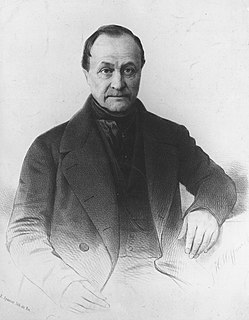
Positivism is an empiricist philosophical theory that holds that all genuine knowledge is either true by definition or positive—meaning a posteriori facts derived by reason and logic from sensory experience. Other ways of knowing, such as theology, metaphysics, intuition, or introspection are rejected or considered meaningless.
Richard White is an American historian, two-time winner of the Francis Parkman Prize, past President of the Organization of American Historians, and the author of books about the American West, Native American history, the United States in the Gilded Age, railroads, capitalism, and environmental history. He is the Margaret Byrne Professor of American History Emeritus at Stanford University. Earlier in his career, he taught at the University of Washington, University of Utah, and Michigan State University.

Journalism in the United States began as a "humble" affair and became a political force in the campaign for American independence. Following independence, the first amendment to the U.S. Constitution guaranteed freedom of the press and freedom of speech. The American press grew rapidly following the American Revolution. The press became a key support element to the country's political parties, but also for organized religious institutions.

Benjamin Kidd (1858–1916) was a British sociologist whose first job was a civil service clerk, but by persistent self-education, he became internationally famous by the publication of his book Social Evolution in 1894. Kidd argued that the "evolution of society and of modern civilization" is caused not by reason or science, but by the force of "religious beliefs." The book had worldwide circulation and impacted the Social Gospel movement.
Leon Fink is a Distinguished Professor in the Department of History at the University of Illinois at Chicago. A historian, his research and writing focuses on labor unions in the United States, immigration and the nature of work. He is the editor of Labor: Studies in Working-Class History, the premier journal of labor history in the United States.

This is a selected bibliography of the main scholarly books and articles of Reconstruction, the period after the American Civil War, 1863–1877.
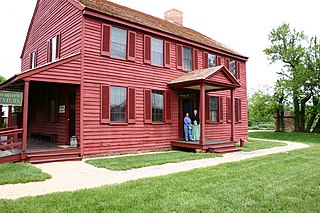
The Surratt House is a historic house and house museum located at 9110 Brandywine Road in Clinton, Prince George's County, Maryland, United States. The house is named for John and Mary Surratt, who built it in 1852. Mary Surratt was hanged in 1865 for being a co-conspirator in the Abraham Lincoln assassination. It was acquired by the Maryland-National Capital Park and Planning Commission (M-NCPPC) in 1965, restored, and opened to the public as a museum in 1976.
Social democracy is a political, social, and economic philosophy within socialism that supports political and economic democracy. As a policy regime, it is described by academics as advocating economic and social interventions to promote social justice within the framework of a liberal-democratic polity and a capitalist-oriented mixed economy. The protocols and norms used to accomplish this involve a commitment to representative and participatory democracy, measures for income redistribution, regulation of the economy in the general interest, and social welfare provisions. Due to longstanding governance by social democratic parties during the post-war consensus and their influence on socioeconomic policy in Northern and Western Europe, social democracy became associated with Keynesianism, the Nordic model, the social-liberal paradigm, and welfare states within political circles in the late 20th century. It has been described as the most common form of Western or modern socialism, as well as the reformist wing of democratic socialism.
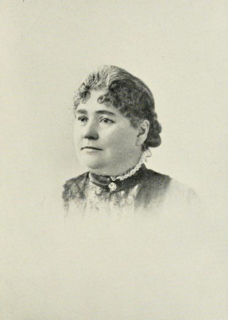
The Woman's Relief Corps (WRC) is a charitable organization in the United States, originally founded as the official women's auxiliary to the Grand Army of the Republic (GAR) in 1883. The organization was designed to assist the GAR and provide post-war relief to Union veterans. The GAR had been created as a "fraternal" organization and refused to allow women to join up until the creation of this auxiliary. it is largely dedicated to historical preservation of research and official documentation related to the WRC and GAR.
Edward A. Purcell Jr. is an American historian.
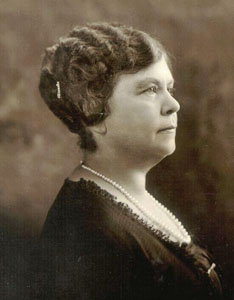
Mary Elliott Flanery was an American progressive era social reformer, suffragist, politician, and journalist who is best remembered as the first woman elected to the Kentucky General Assembly and first woman elected to a state legislature south of the Mason–Dixon line. Flanery was an advocate for equal rights for women, and actively worked to pass legislation that would give women the right to vote.

The National Association for the Promotion of Social Science (NAPSS), often known as the Social Science Association, was a British reformist group founded in 1857 by Lord Brougham. It pursued issues in public health, industrial relations, penal reform, and female education. It was dissolved in 1886.
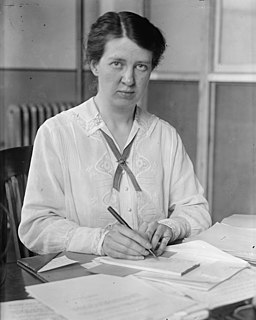
Mary Abby van Kleeck was an American social scientist of the 20th century. She was a notable figure in the American labor movement as well as a proponent of scientific management and a planned economy.
References
- ↑ "Mary Furner's Faculty Page". history.ucsb.edu. UCSB History Department. Retrieved 6 June 2022.